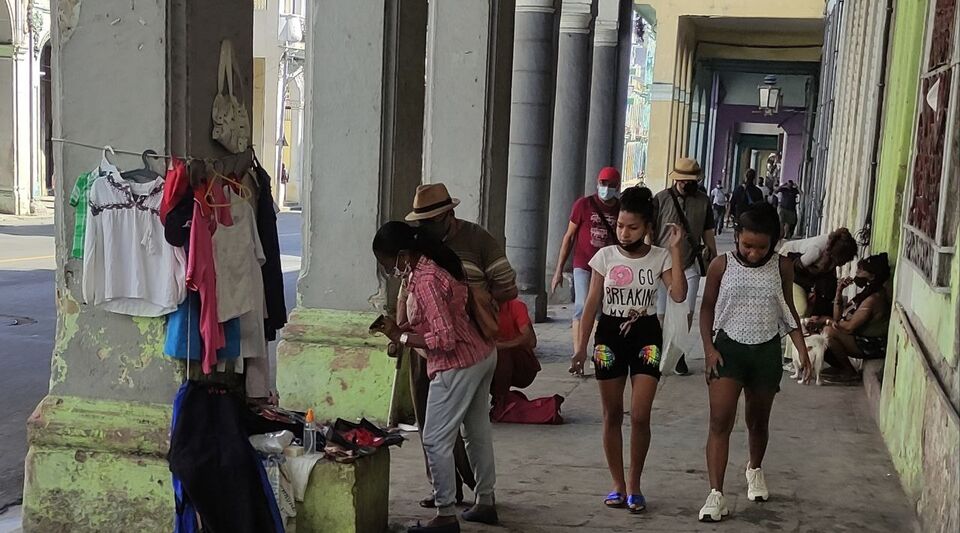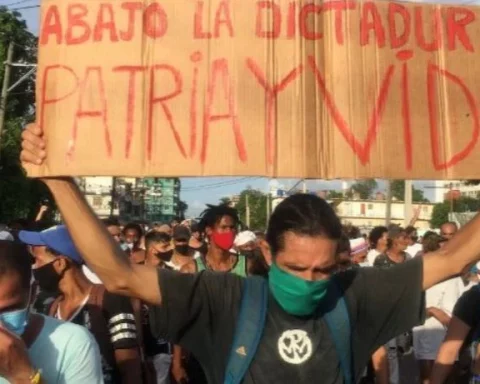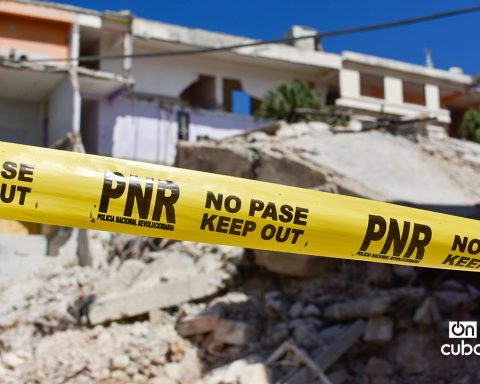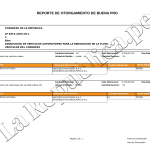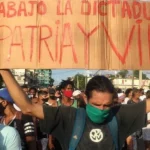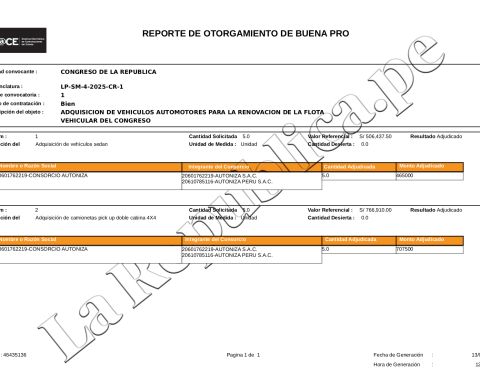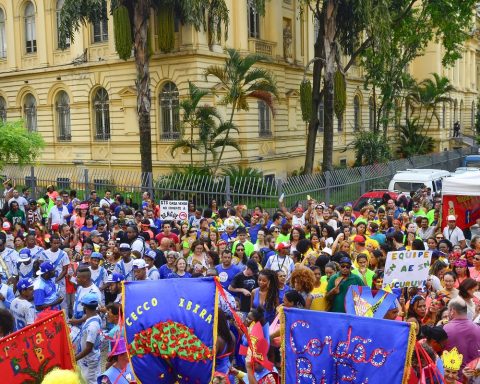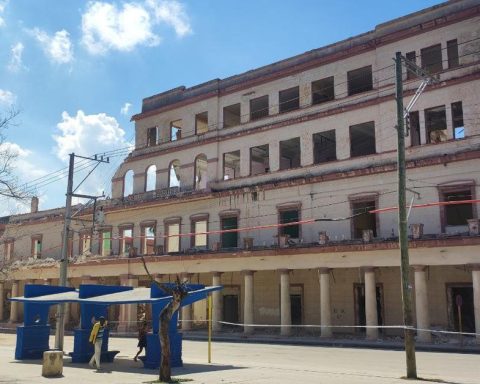Second-hand clothes, the occasional worn-out shoe, soap, a box of cigarettes or homemade sweets, you can get everything at the street stalls that proliferate, every day, in some neighborhoods of Havana, especially in the Monte, Reina, Carlos III and Galiano streets.
“I don’t sell to get rich, I even do it sometimes to buy bread,” says a disabled woman over 70 years old who sells coquitos in the doorway of a school. “Sometimes very little is sold, other times things are better for me, but I can’t stop doing it, because it’s impossible for me to live on the pension.” Now his coffee pot is broken, he is sad, and yesterday they came selling him a 6-cup size one for 2,500 pesos. The coffee machines are sold in stores for $12.50 in foreign currency and are then resold by the informal sector at high prices in national currency. “But I don’t have a card in MLC nor have I ever set foot in one of those stores,” he laments.
Unlike the recently authorized garage sales, these commercial points are not in the portal of a house or in the vicinity of the home of the improvised seller, but take advantage of the busiest places to place the merchandise, on a blanket on the ground. , the front steps of a building or a park bench. They operate under total illegality, but their products are so precarious and worn that the police rarely reprimand them.
“Although they may not look as pretty or shiny, these pieces can save anyone’s day if they have a leak in the house,” he says, showing several metal pipe elbows
A pair of shoes with broken heels, pieces of plumbing used several times, a photo frame cracked at one end, empty knobs to store liquid detergents or hand gel are part of these sales of the urgency that make up the lowest level of private commerce on the Island. However, despite their very poor offer, the sellers manage to get some money out of them.
“There is always someone who is looking for something second-hand because they cannot buy it new,” a vendor who has his blanket near the Plaza de Cuatro Caminos tells this newspaper. “Even if they don’t look as pretty or shiny, these pieces can save anyone’s day if they have a leak in the house,” he says, displaying several metal pipe elbows.
As the crisis in the country deepens, products that a few years ago nobody would think could find a buyer appear in these improvised points. Some are true relics of a recent past where a greater number of children’s toys, school supplies, home decorations and even plastic flowers could be found in Cuban stores.
“I sell empty perfume bottles,” details another informal vendor who occupies the entrance of a staircase on Belascoaín street in Central Havana. “There are people who want to put a cheap cologne in a nice bottle and I buy them from house to house, wash them well and sell them here. Some don’t last at all between when I take them out and they buy them from me.”
“This week I have been lucky because I found good bottles thrown in the garbage in Playa and they were all of quality and the ones that can be refilled, they were practically snatched from my hand as soon as I started selling them”
“This week I have been lucky because I found good bottles thrown in the garbage in Playa and they were all of quality and the ones that can be refilled, they were practically snatched from my hand as soon as I started selling them,” he adds. The woman also offers small empty Nivea cream cans and non-carbonated matchboxes for those who want to refill them. Others fill the bottles they collect with cheap colognes and sell them that way.
The Cuban government and the official press ignore these stories and the galloping inflation, one of the reasons for the proliferation of these street vendors. When an official date approaches or an important foreign visitor arrives in the country, the uniformed men clean the main avenues of the presence of these merchants, but later they return multiplied.
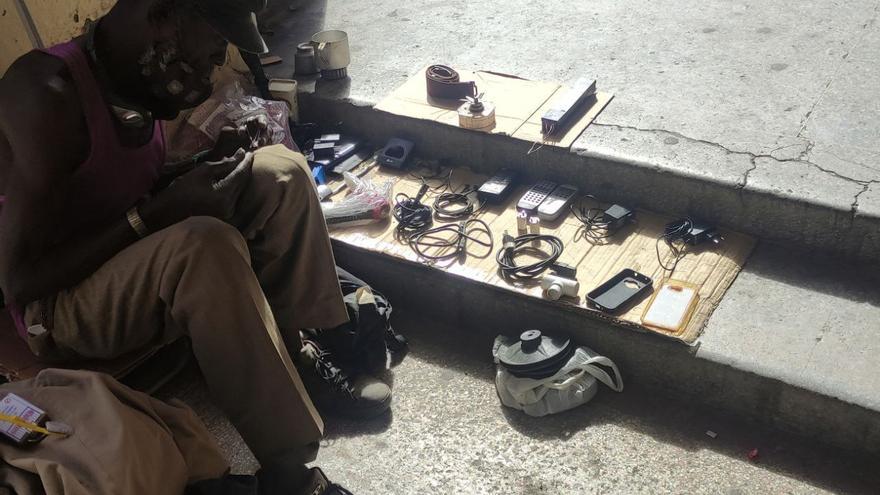
“Today a bag of milk is 1,000 pesos and tomorrow it can go up to 1,200,” complains a used clothing vendor on Reina Street. “I never imagined that after working so many years I would have to start doing this to be able to eat, this was not the future that the Revolution offered me when I was a young man and for which I worked so hard.”
No self-employment license covers these precarious traders. Most of them are elderly people, women or people who practically live on the streets. When they do manage to scrape together some money, their main expenses go to buying food from the nearest stalls. They literally sell to eat.
________________________
Collaborate with our work:
The team of 14ymedio is committed to doing serious journalism that reflects the reality of deep Cuba. Thank you for joining us on this long road. We invite you to continue supporting us, but this time becoming a member of our journal. Together we can continue transforming journalism in Cuba.
